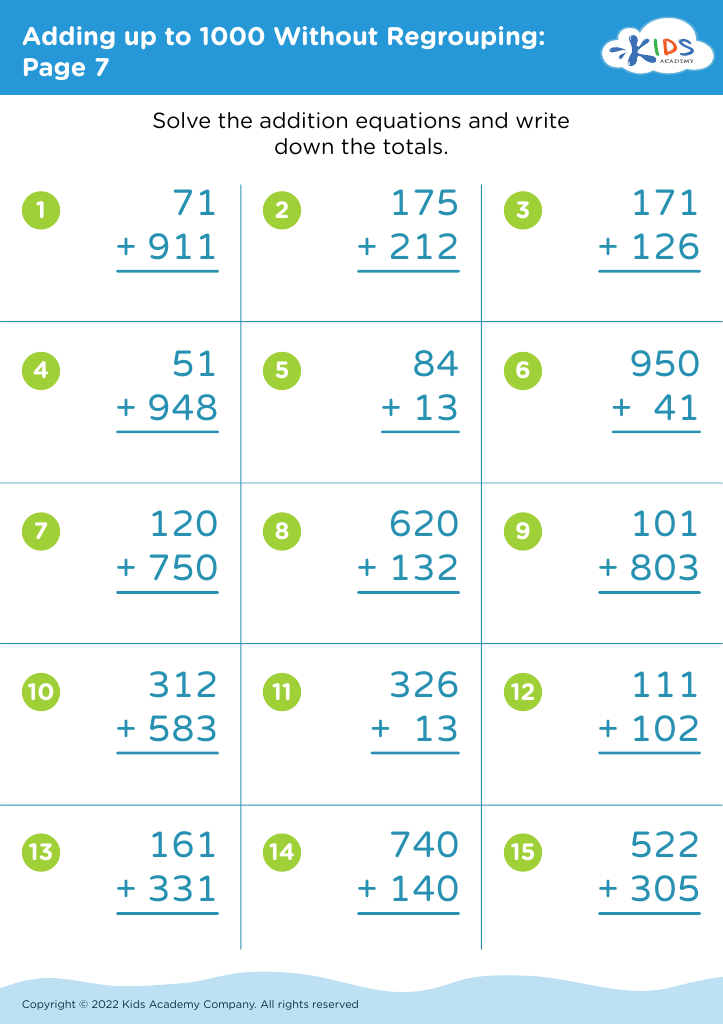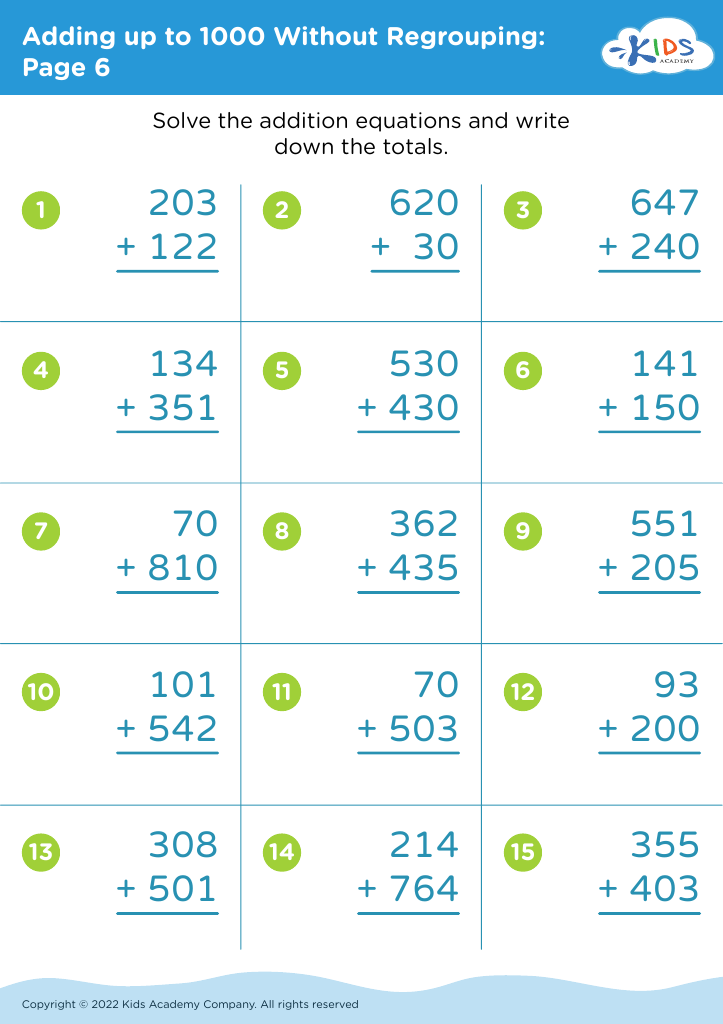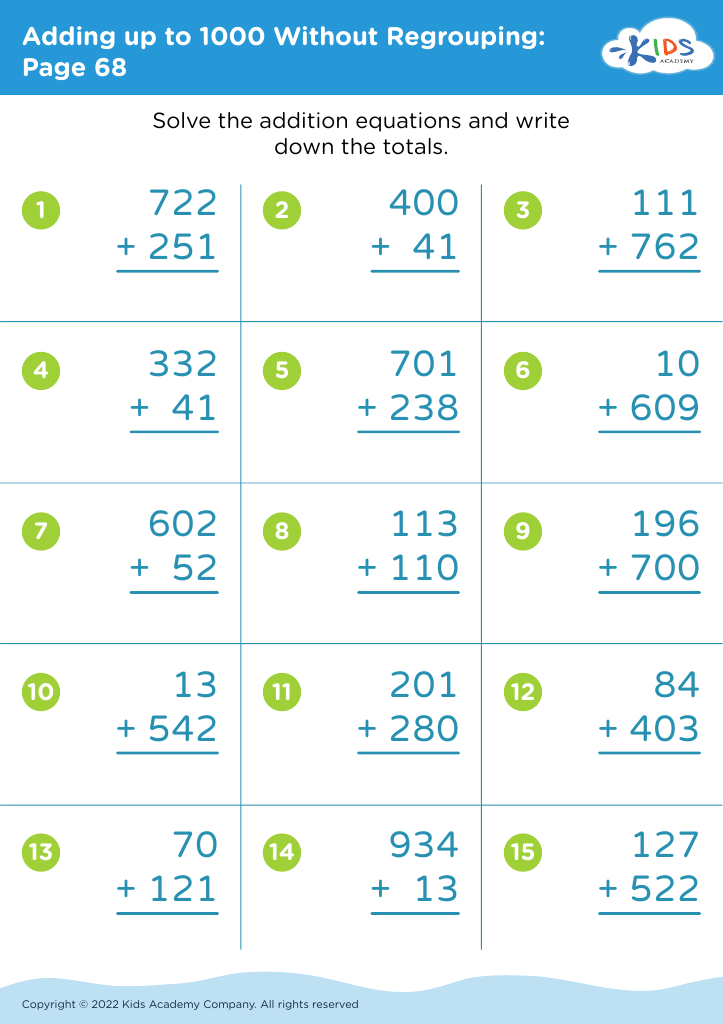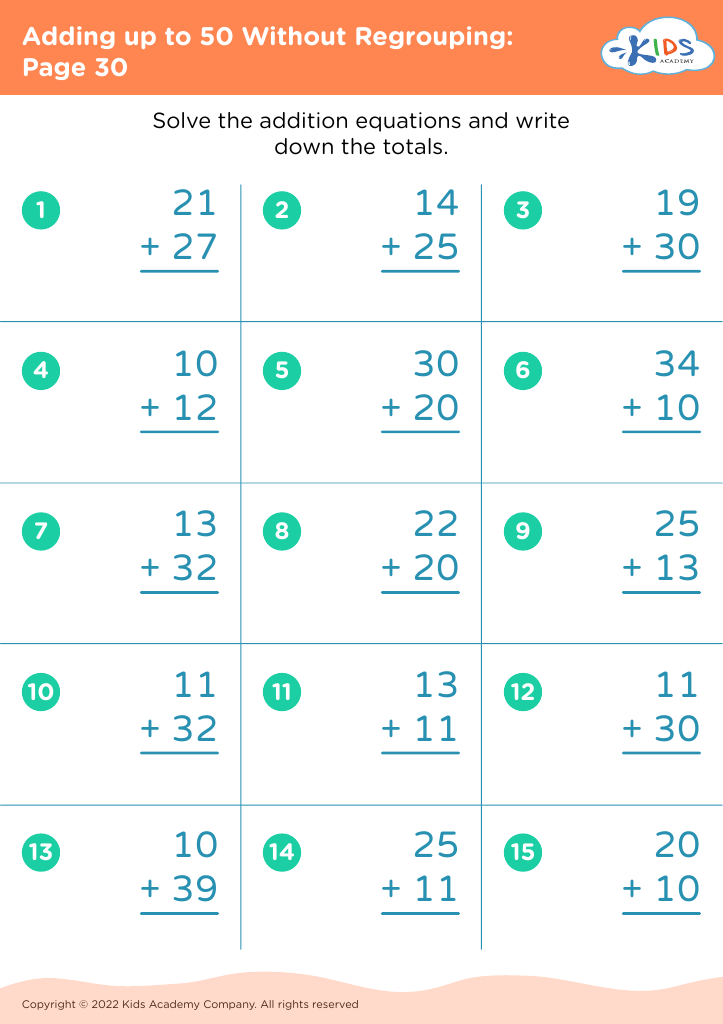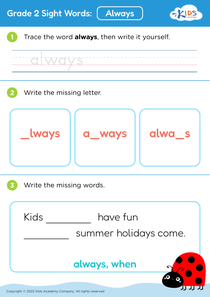Improving counting skills Grade 2 Addition Worksheets
9 filtered results
-
From - To
Enhance your Grade 2 students' counting and addition skills with our engaging "Improving Counting Skills" worksheets. Designed specifically for young learners, these worksheets combine fun activities with effective educational strategies to reinforce counting principles and basic addition. Each printable worksheet includes a variety of visual aids and practice problems that nurture students' numerical understanding, fostering confidence in their math abilities. From counting objects to solving simple addition equations, these resources aim to make learning enjoyable and interactive. Empower your classroom with our comprehensive worksheets, perfect for reinforcing concepts at school or at home. Start building essential math skills today!
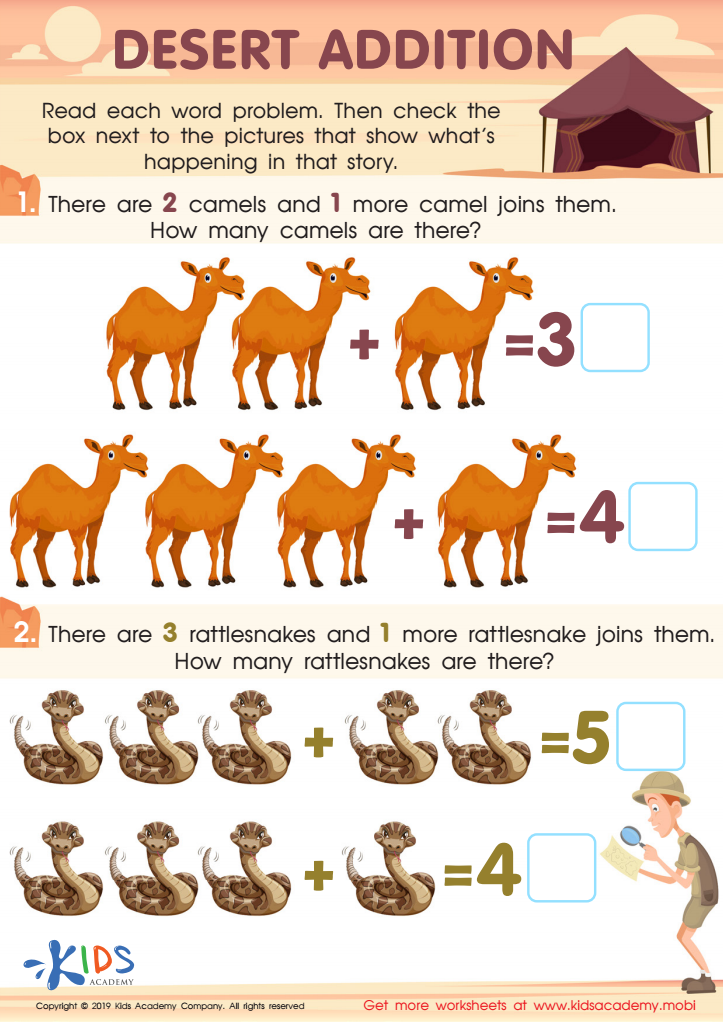

Desert Addition Worksheet
Improving counting skills in Grade 2, particularly in addition, is crucial for a child's overall mathematical foundation and their future academic success. At this age, students are transitioning from simple numeral recognition to more complex operations. Proficient counting enables them to understand addition concepts deeply, reinforcing number sense and relationships between numbers.
When parents and teachers prioritize counting skills, they help children develop essential strategies for solving problems, such as grouping and partitioning numbers. Enhanced counting skills can also boost children's confidence, making mathematics less intimidating and more engaging. This is the stage where good habits form, leading to greater proficiency as they confront more sophisticated math concepts in later grades.
Moreover, counting helps in real-world applications—whether it's counting money, identifying quantities in everyday tasks, or analyzing sports statistics, strong counting skills support practical life skills. Ultimately, fostering a strong base in counting benefits not just academic performance but also cognitive development, as it enhances critical thinking, problem-solving abilities, and resilience. Therefore, parents and teachers play a vital role in cultivating these skills, ensuring their children are well-equipped for future challenges in mathematics and beyond.

 Assign to My Students
Assign to My Students
